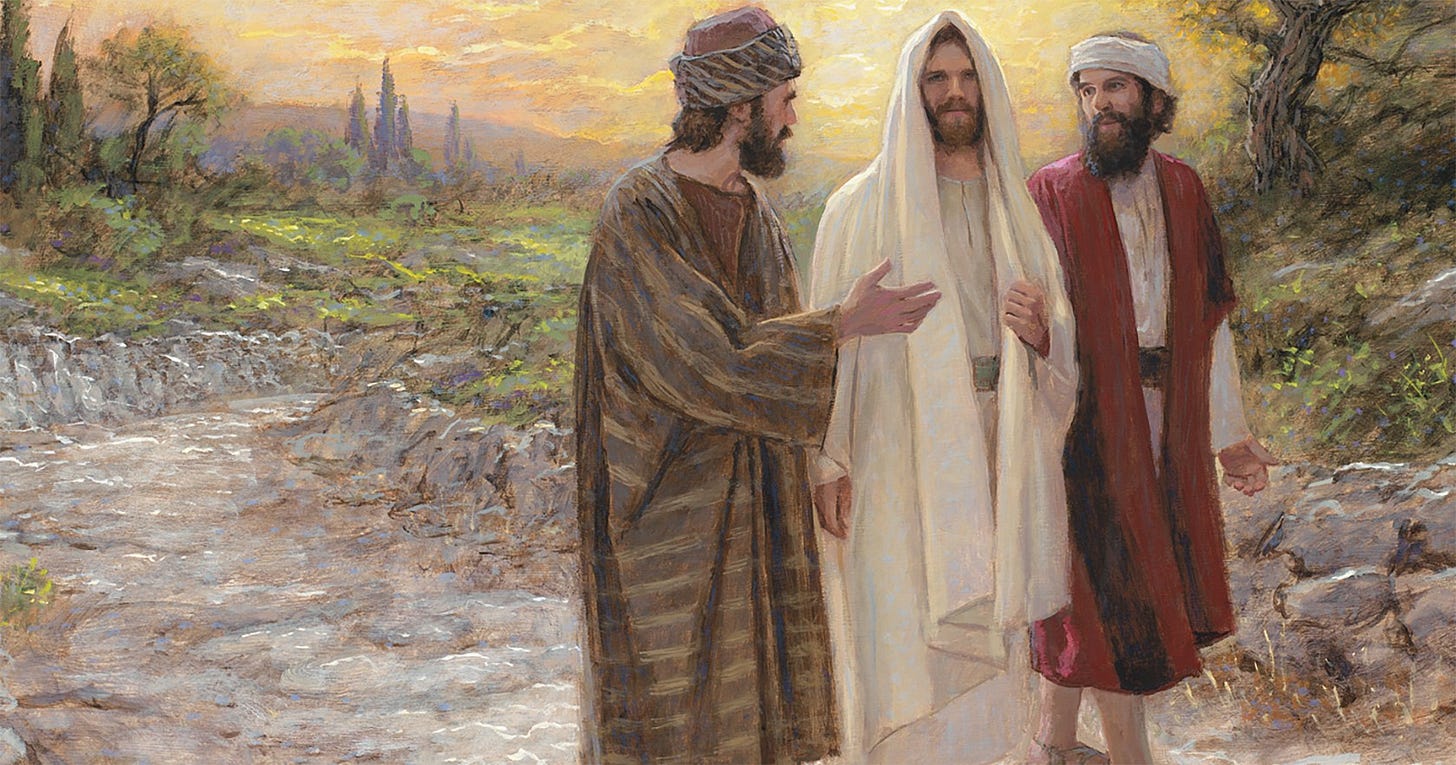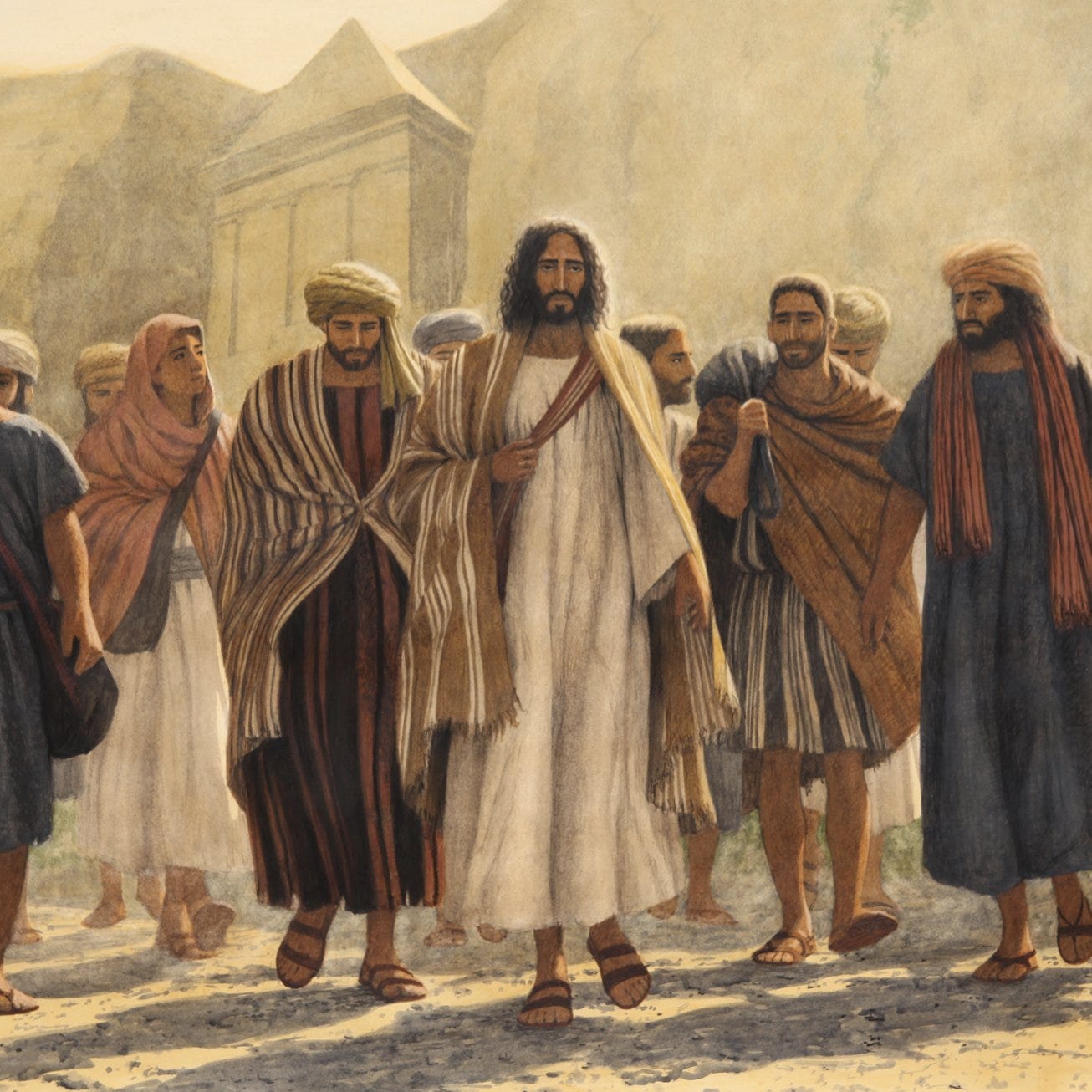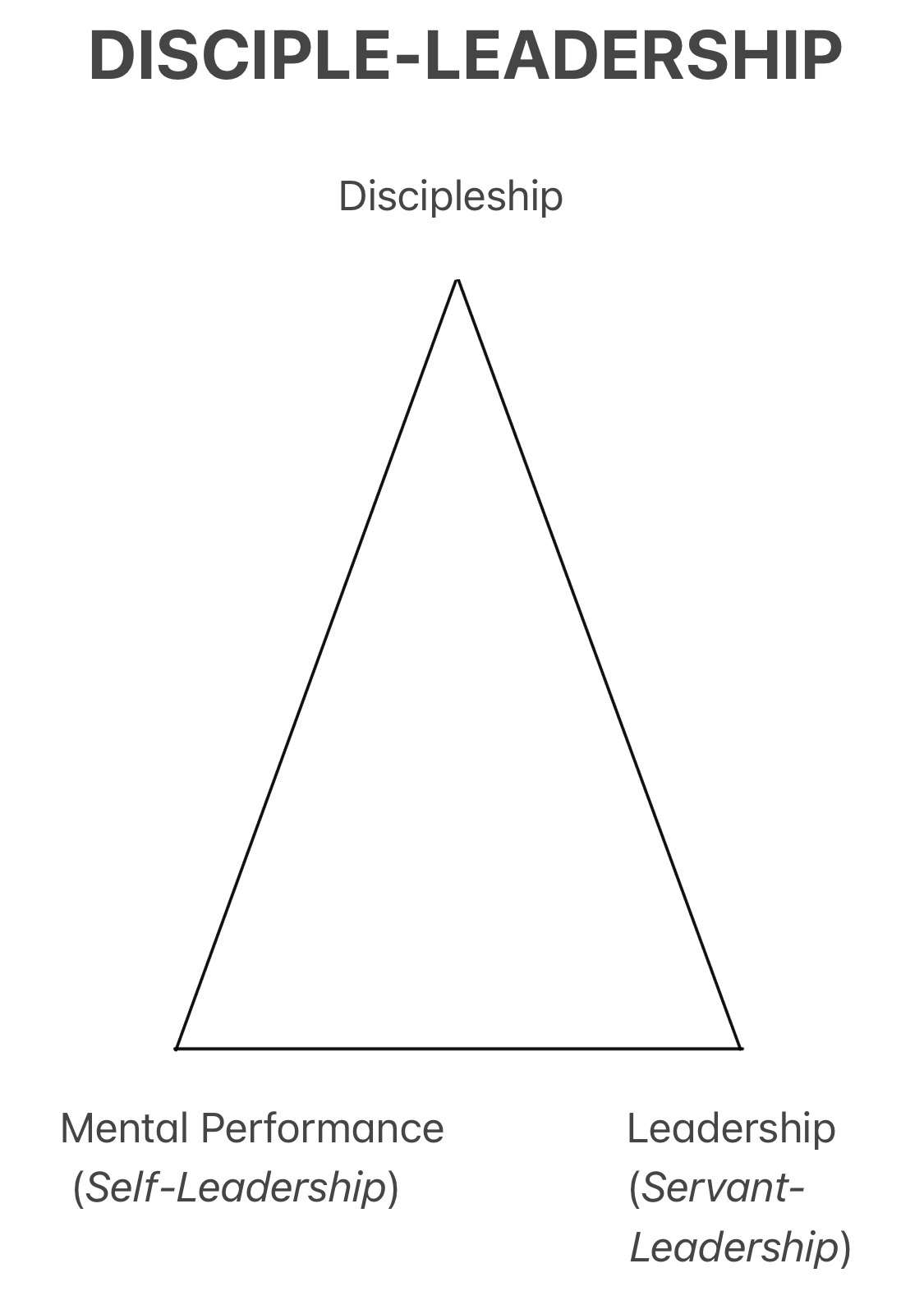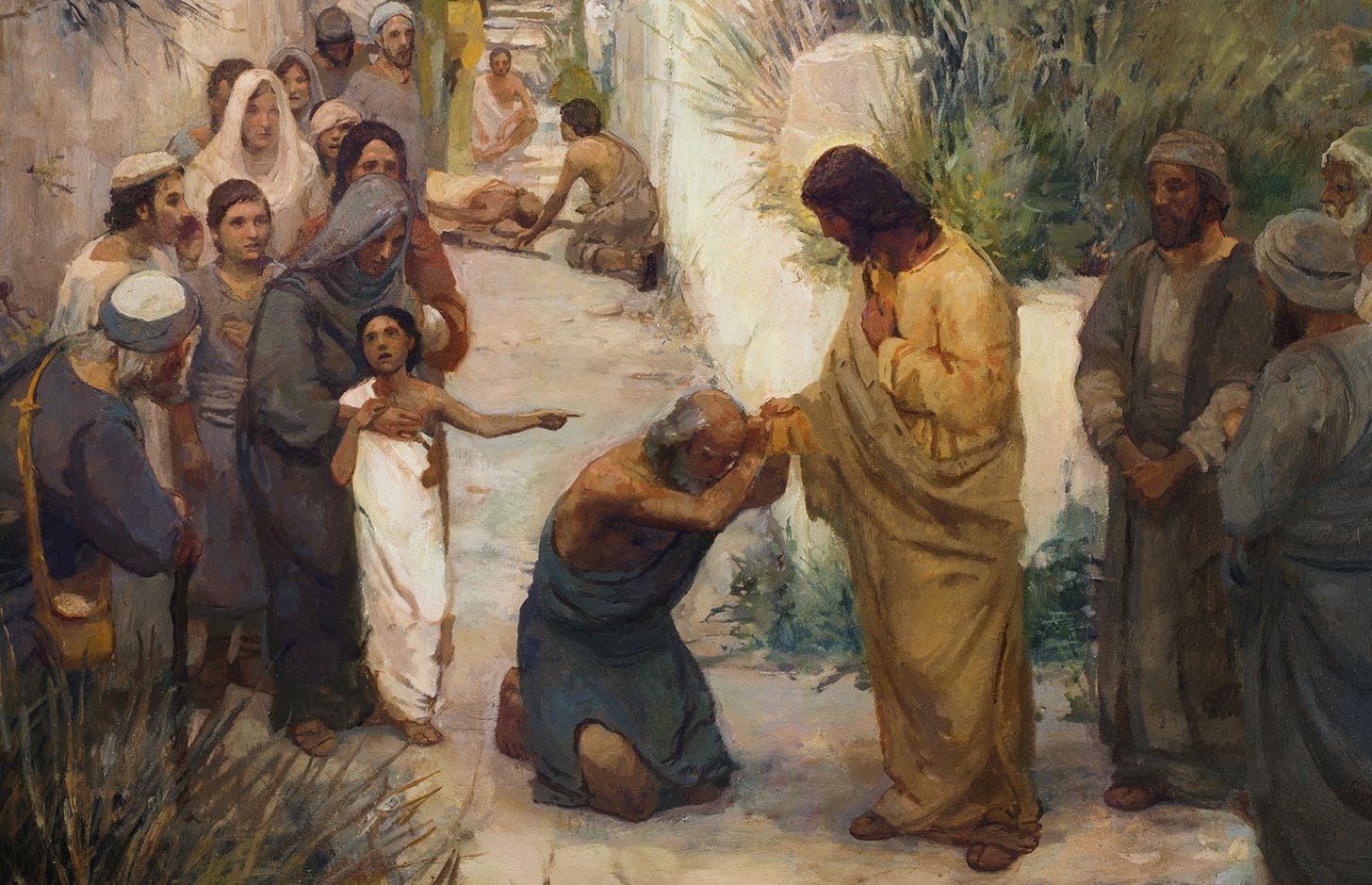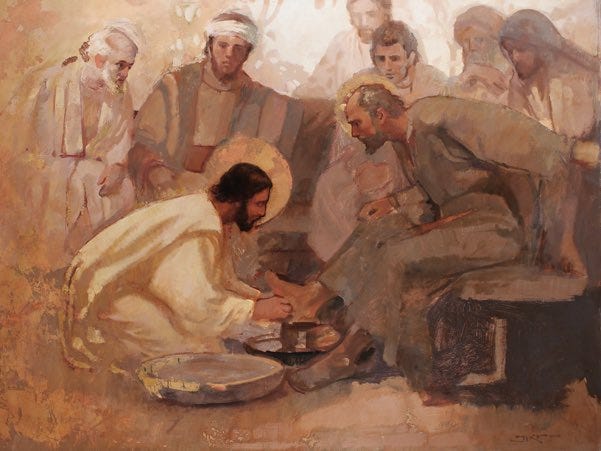The call to be a disciple-leader is a call to lead as Christ leads.
Kim B. Clark
former Dean of Harvard Business School
Did not our heart burn within us?
This was the reaction of two men after unknowingly spending a day with Jesus.1 This was the effect Jesus had on those who followed Him. He set souls on fire.
Call it His leadership, call it His presence, call it whatever you want, but His effect on others—let’s take Peter for example—was such that after his first exposure to Jesus, he left his previous life, unflinchingly, to follow Him.2 Then, he lived his life for Him. He even died for Him.
Did not Peter’s heart burn within him?
As in all things, Jesus set the standard of leadership. He taught and showed how to lead. And He has called you to follow His example. He said, “Follow me, and I will make you fishers of men.”3 Said another way, “Follow me, and I will empower you to lead in my way, after my pattern.”
So what is Jesus’ way of leadership? Why is it so important? And how can you grow into a leader after the way of Jesus?
Leadership Theories
Leadership is one of the most theorized and written-about topics in the history of the world. As of right now, there are over 70,000 books written on leadership.4 Not to mention blogs, social media posts, videos, etc. There are theories galore. I studied this topic extensively in college. It's what I got my degree in. In my free time, I would devour information on the subject. There are countless theories. Here are just a few:
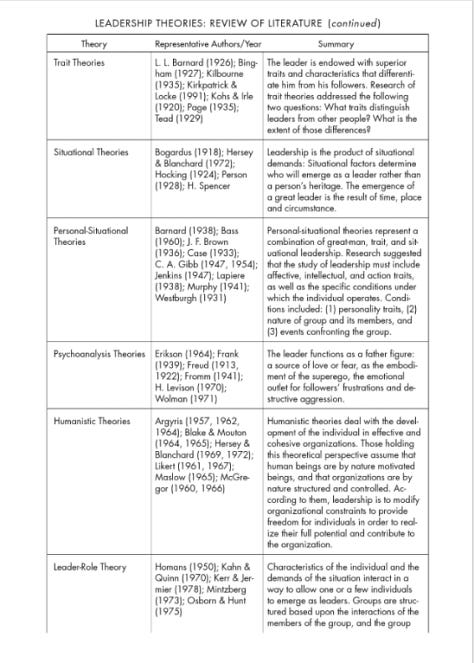
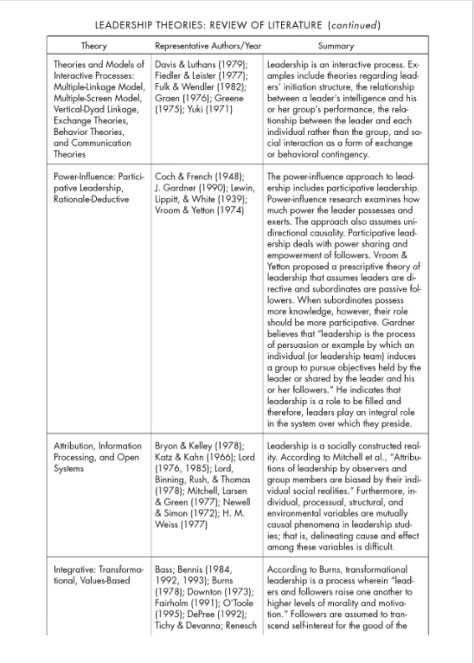
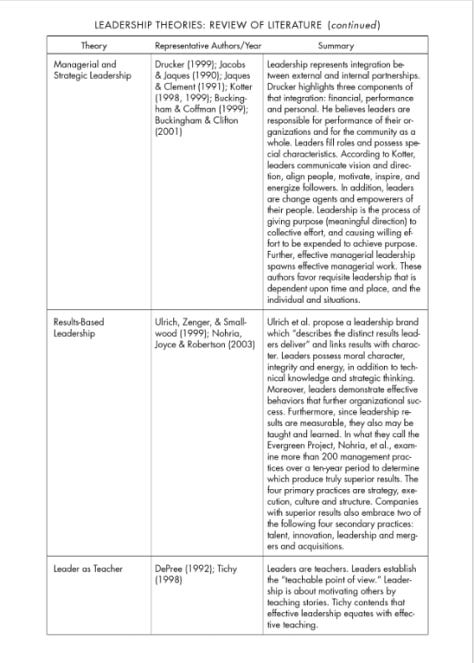
Studying all of these different ideas and perspectives has been a blessing. It's given me a better idea of how deep and complex the subject really is. Each theory provides good value. But where is the simplicity amidst the complexity? What are leadership’s core principles? What actually moves the leadership needle? What is the most sound leadership philosophy?
Is there one theory, framework, or definition that perfectly encapsulates leadership?
No.
The science of leadership is much too vast to be fully captured in one working theory, framework, or definition. But it has been fully captured and expressed in a person. Jesus Christ is the embodiment of leadership. He is leadership personified. Christ is the definition.
His way is the way of the disciple-leader.
What is a Disciple-Leader?
“For a disciple of Jesus Christ, academic scholarship is a form of worship.”
- Neal A. Maxwell
Neal A. Maxwell gave a name to scholars who put the Lord first: disciple-scholars.5 Likewise, the phrase “disciple-leader” conveys leadership’s true Source and proper order of operations.
Central to the work we do here at The Disciple-Leader is the fundamental belief that for a disciple of Jesus Christ, leadership development is a form of worship.6 For a disciple of Jesus Christ, mastering your mind is a form of worship.7 Let’s explore this more.
A disciple-leader disciples himself8 to Jesus. He studies under Him. This means he learns about Christ9 and from Christ (via the Holy Ghost).10
Through this process, the disciple-leader learns how to come unto Him, and as he does, Jesus changes him.11 He becomes increasingly more like Jesus.
To summarize: The disciple-leader studies under Jesus to learn how to come unto Jesus so that he may eventually become like Jesus (and lead like Him).
A disciple-leader realizes that discipleship void of leadership isn’t true discipleship. Leadership void of discipleship lacks Godly power and is limited in its impact.
A Disciple-Leader’s Mantra
(Christ) is my Master and He has chosen me to personally represent Him. To stand in His place, to say and do what He Himself would say and do if He personally were ministering to the very people to whom He has sent me. My voice is His voice, and my acts are His acts; my words are His words and my doctrine is His doctrine. My commision is to do what He wants done. To say what He wants said.
Bruce R. McConkie
Nothing will actualize your leadership potential more than a daily, wholehearted focus on emulating Jesus Christ.
Aristotle was adamant that, “We are what we repeatedly do.” He also believed—correctly—that repeated action isn’t just a revealer of identity, it’s the vehicle by which we grow into who we want to be. He wrote, “The virtues … we acquire by first having actually practiced them, just as we do the arts. We learn an art or craft by doing the things that we shall have to do when we have learned it: for instance, men become builders by building houses, harpers by playing on the harp. Similarly, we become just by doing just acts, temperate by doing temperate acts, brave by doing brave acts.”12
We become like Christ by doing what Christ does.
The Christo-centric approach to leadership and Christ’s ensuing power that flows into and through you (via the Holy Ghost) is what distinguishes a disciple-leader. One 19th-century apostle detailed how Christ’s power, flowing through an individual, manifests itself. I believe this is an apt description of God’s power and its effect on a disciple-leader:
(The Holy Ghost) is an intelligent being, in the Image of God, possessing every organ, attribute, sense, sympathy, and affection that is possessed by God Himself. But these are possessed by man, in his rudimental state, in a subordinate sense of the word. Or, in other words, these attributes are in embryo, and are to be gradually developed. They resemble a bud, a germ, which gradually develops into a bloom and then, by progress, produces the mature fruit after its own kind.
The Gift of the Holy Ghost adapts itself to all these organs or attributes. It quickens all the intellectual faculties, increases, enlarges, expands, and purifies all the natural passions and affections and adapts them, by the gift of wisdom, to their lawful use. It inspires virtue, kindness, goodness, tenderness, gentleness and charity. It develops beauty of person, form and features. It tends to give health, vigor, animation and social feeling. It invigorates all the faculties of the physical and intellectual man. It strengthens and gives tone to the nerves. In short, it is, as it were, marrow to the bone, joy to the heart, light to the eyes, music to the ears, and life to the whole being.
In the presence of such persons (who have been thus affected by It), one feels to enjoy the light of their countenance, as the genial rays of a sunbeam. Their very atmosphere diffuses a thrill, a warm glow of pure gladness and sympathy of Spirit. No matter if the parties are strangers, entirely unknown to each other, each will be apt to remark in his own mind, and perhaps exclaim, when referring to the interview- ‘Oh, what an atmosphere encircles that stranger! How my heart thrilled with pure and holy feelings in the presence of this person. What confidence and sympathy he inspired. His countenance and spirit gave me more assurance than a thousand written recommendations, or introductory letters.’ Such is the Gift of the Holy Ghost, and such are it's operations, when received through the lawful channel-the Divine, Eternal Priesthood.13
The Disciple-Leader Framework
While no one framework can comprehensively capture the totality of a topic as broad as leadership, I believe the disciple-leader framework comes the closest. It is based on both Jesus’ example and teachings.
And one of the scribes came ... and asked (Jesus), Which is the first commandment of all?
And Jesus answered him, The first of all the commandments is, Hear, O Israel; The Lord our God is one Lord:
And thou shalt love the Lord thy God with all thy heart, and with all thy soul, and with all thy mind, and with all thy strength: this is the first commandment.
And the second is like, namely this, Thou shalt love thy neighbor as thyself. There is none other commandment greater than these.14
Here we get the clearest view into Christ’s leadership philosophy. Love God. Love others. Love yourself.
The above image represents the Disciple-Leadership framework. In lockstep with Jesus’ leadership philosophy, the disciple-leadership framework is three-part. Discipleship. Self-Leadership. Servant-Leadership.
Discipleship is at the top of the triangle. This is for two reasons:
The first and greatest commandment is to love God.
Self-leadership and servant-leadership are the natural fruits of discipleship.
Self-leadership and servant-leadership flow downstream from discipleship. They are the barometers of discipleship. Wherever real discipleship exists, self and servant-leadership will be there. If either self or servant-leadership is absent or lacking, then you can know that discipleship (in the way Jesus defined it15) is absent or lacking.
Let's break down the three pillars of disciple-leadership.
Discipleship (Love God): The disciple-leader loves God with all of his heart, soul, mind, and strength.16 This love for God is his only motive.17 It drives all of his decisions. He consecrates himself to the Savior.18 The Doctrine of Christ is the disciple-leader's operating system.19
The disciple-leader's most prioritized and fulfilling relationship is with God.20
Self-Leadership (Love Yourself): Based on his understanding of his relationship to God21, and flowing from his love for God, the disciple-leader loves himself. He realizes the significance of being God's offspring.22 He understands his potential and treats himself in a way appropriate for someone with his identity and potential23 – with high love and high expectations.24 His self-love is manifest by his insatiable drive to become the best version of himself, or in other words, become like Christ.25
Servant-Leadership (Love Others): The disciple-leader sees others as Jesus sees them.26 He sees them as they really are27 and as they really may become.28 As a result, he treats others as they really are: as the most important person in the world.29
Love is his only motive.30 He strives to emulate Christ in every relationship and every interaction. To do what He would do. To say what He would say. To reflect and glorify Christ.
His hope is that others feel Christ's love through him.
Example of Jesus
Jesus' Discipleship: Jesus spoke frequently about His Father. He discipled Himself to the Father. He consecrated Himself to the Father.
"The Son can do nothing of himself, but what he seeth the Father do ... I can of mine own self do nothing ... because I seek not mine own will, but the will of the Father which hath sent me."31
"I live by the Father."32
"My doctrine is not mine, but His that sent me ... I know Him: for I am from Him, and He hath sent me."33
Jesus was the greatest disciple to ever live.
Jesus' Self-Leadership: Jesus mastered Himself. He became the best version of Himself in every way. His mental strength. His knowledge and learning. His craft. He was the greatest and most skilled teacher of all time. Books have been written on the beauty and technique of His teaching. Doctors were listening to Him and asking Him questions when He was just 12.
"And it came to pass, that after three days they found Him in the temple, sitting in the midst of the doctors, and they were hearing Him and asking Him questions."34
"And Jesus increased in wisdom and stature, and in favour with God and man."35
"He went up into a mountain apart to pray: and when the evening was come, He was there alone."36
"For He taught them as one having authority."37
"And they were astonished at His doctrine; for His word was with power."38
"In intelligence and performance, Jesus far surpasses the individual and composite capacities and achievements of all who have lived, live now, and will yet live."39
Neal A. Maxwell
Jesus' Servant-Leadership: He went about doing good.40 When He was with others, He was serving. His self-leadership wasn't for Him either. In fact, He never had a selfish moment. The time He spent renewing, learning, growing, and mastering Himself was motivated by His love of God and others. He improved Himself for the purpose of serving others and glorifying God more effectively and powerfully.
Here are just a few examples of His leadership.
Encourager: “Among them that are born of women there hath not risen a greater than John the Baptist.”41
Admirer: "Jesus saw Nathanael coming to Him, and saith of Him, Behold an Israelite indeed, in whom is no guile!"42
Empath: "Jesus wept. Then said the Jews, Behold how (Jesus) loved (Lazarus)."43
Bridge-Builder: "As Jesus sat at meat in the house, behold, many publicans and sinners came and sat down with Him."44
Mentor:"Then Jesus beholding him, loved him, and said unto him, One thing thou lackest: go thy way, sell whatsoever thou hast, and give to the poor, and thou shalt have treasure in heaven: and come, take up the cross, and follow me."45
Servant: "After he poureth water into a basin, (He) began to wash the disciple's feet, and to wipe them with the towel wherewith He was girded."46
Leadership and The Work of God
Disciple-leadership is the Christ-centered pursuit of excellence. It's the pursuit of maximizing yourself and others.
Self-Leadership is the pursuit of intrapersonal excellence.
Servant-Leadership is the pursuit of interpersonal excellence.
Disciple-Leadership is consecrating yourself to Jesus Christ.
What is God's work? Jesus said: "For behold, this is my work and my glory—to bring to pass the immortality and eternal life of man."47
To come unto Christ and become more like Him in this life, and ultimately receive eternal life, or in other words, to bring about His work and glory, you must live the doctrine of Christ. The doctrine of Christ has a few elements:
Exercise faith in Christ.
Repent daily.
Receive saving ordinances. Enter into and honor covenants with God.
Receive the Holy Ghost.
Intentionally and iteratively repeat the steps in the Doctrine of Christ.
By continually engaging with the doctrine of Christ, you will eventually become like God.48
Between where you are right now and where God wants you to be49 (like Himself), a lot about you needs to change.
Henry B. Eyring wrote, "The Lord's work is not just to solve problems; it is to build people ... God's work and glory is not simply to run an effective organization; it is to 'bring to pass the immortality and eternal life of man' ... Our progress is His work!"50
Two things, then, are true.
God wants you to be like Him. His work and joy is to help you change and grow to become like Him. Molding you is His work.51 Your progress is His work.
Leadership is the pursuit of excellence. It is the pursuit of maximizing yourself and others. It is the work of becoming your best self.
Thus, leadership is the work of God.
The Lord's work is to build people, and that is the work of leadership.
The Lord's work is our progress, and progress is the work of leadership.
Leadership is the Lord's work.
What To Expect From This Website
This website will focus on the 3 core areas of disciple-leadership.52
Consecrating and discipling yourself to God (Love of God // Discipleship // Christianity)
Leading Others (Love of Others // Servant-Leadership // Communication & Leadership)
Leading Yourself (Love of Self // Self-Leadership // Mental Performance & Psychology)
These are the 3 pillars of Disciple-Leadership. To be a disciple-leader, you can't have just one. Two won't cut it either. You need all three.
Without self-leadership, there is no discipleship.
Without servant-leadership, there is no discipleship.
Without discipleship, self and servant-leadership never reach their full potential.
What's the ultimate aim for a disciple-leader?
Therefore, what manner of men ought ye to be? Verily I say unto you, even as I am.
Jesus Christ53
"Their eyes were holden (restrained) so they should not know him." - Luke 24:16
Matthew 4:20
Matthew 4:19
Cameron, K. (2012). Positive Leadership : Strategies for Extraordinary Performance Ed. 2.
https://mi.byu.edu/new-mission-statement-2018/
Luke 2:52
1 Corinthians 2:16, D&C 6:36
For the sake of brevity, I will refer to the hypothetical disciple-leader throughout the article using male pronouns. Obviously, female pronouns work as well.
And we talk of Christ, we rejoice in Christ, we preach of Christ, we prophesy of Christ, and we write according to our prophecies, that our children may know to what source they may look for a remission of their sins. (2 Nephi 25:26)
Behold, I say unto you they are made known unto me by the Holy Spirit of God. Behold, I have fasted and prayed many days that I might know these things of myself. And now I do know of myself that they are true; for the Lord God hath made them manifest unto me by his Holy Spirit; and this is the spirit of revelation which is in me. (Alma 5:46)
But he that believeth these things which I have spoken, him will I visit with the manifestations of my Spirit. (Ether 4:11)
Behold, he changed their hearts; yea, he awakened them out of a deep sleep, and they awoke unto God. (Alma 5:7)
https://www.loebclassics.com/view/aristotle-nicomachean_ethics/1926/pb_LCL073.73.xml?readMode=recto
Parley P. Pratt, Key to the Science of Theology, p. 61-62
Mark 12:28-31
John 13:34-35
Mark 12:30
What If Love Were Our Only Motive by Russell T. Osguthorpe
Lifelong Conversion by Dale G. Renlund
Once we make a covenant with God, we leave neutral ground forever. God will not abandon His relationship with those who have forged such a bond with Him. In fact, all those who have made a covenant with God have access to a special kind of love and mercy. In the Hebrew language, that covenantal love is called hesed (חֶסֶד).
Hesed has no adequate English equivalent. Translators of the King James Version of the Bible must have struggled with how to render hesed in English. They often chose “lovingkindness.” This captures much but not all the meaning of hesed. Other translations were also rendered, such as “mercy” and “goodness.” Hesed is a unique term describing a covenant relationship in which both parties are bound to be loyal and faithful to each other.
Once you and I have made a covenant with God, our relationship with Him becomes much closer than before our covenant. Now we are bound together. Because of our covenant with God, He will never tire in His efforts to help us, and we will never exhaust His merciful patience with us. Each of us has a special place in God’s heart. He has high hopes for us.
The covenant path is all about our relationship with God—our hesed relationship with Him.
From The Everlasting Covenant by Russell M. Nelson.
“Augustine taught that we are most fundamentally shaped not as much by what we believe, or think, or even do, but by what we love: ‘For when we ask whether somebody is a good person, we are not asking what he believes or hopes for, but what he loves.’ For Augustine, what we call human virtues are nothing more than forms of love. Courage is loving your neighbor’s well-being more than your own safety. Honesty is loving your neighbor’s interests more than your own, even when the truth will put you at a disadvantage. And because Jesus himself said that all God’s law comes down to loving God and your neighbor (Matthew 22:36-40), Augustine believed all sin was ultimately a lack of love. Look at injustice. You may say that you believe in sociel equality and justice and think that you do, but if you make business decisions that exploit others, it is because at the heart level you love your own prosperity more than your neighbor’s. In short, what you love most at the moment is what controls your action at the moment. ‘A body by its weight tends to move toward its proper place … My weight is my love: wherever I am carried, my love is carrying me.’ You are what you love.
“Augustine did not see our problems as stemming only from a lack of love. He also observed that the heart’s loves have an order to them, and that we often love less important things more and the more important things less. Therefore, the unhappiness and disorder of our lives are caused by the disorder of our loves. A just and good person ‘is also a person who has (rightly) ordered his love, so that he does not love what it is wrong to love, or fail to love what should be loved, or love too much what should be loved less (or love too little what should be loved more).’ How does this work? There is nothing wrong with loving your work, but if you love it more than your family, then your loves are out of order and you may ruin your family. Or if you love making money more than you love justice, then you will exploit your employees, again, because your loves are disordered.
“The ultimate disordered love, however—and the ultimate source of our discontent—is failure to love the first thing first, the failure to love God supremely. In his Confessions, Augustine prays to God: ‘For there is a joy that is not given to those who do not love you, but only to those who love you for your own sake … This is happiness and there is no other. Those who think that there is another kind of happiness look for joy elsewhere, but theirs is not true joy. Nevertheless their will remains drawn towards some image of the true joy.’
“Augustine here distills the biblical view of humanity. Human beings were made in the image God … We were made to know joy by loving and glorifying God preeminently. Whether we acknowledge God or not, since we were created for it, we will always look for the infinite joy we were designed to find in loving communion with the Divine. We turn to things in the world to give it to us, but ‘we sin when , neglectful of order, we fix our love on the creature, instead of on Thee, the Creator.’ The reason even the best possible worldly goods will not satisfy is because we were created for a degree of delight and fulfillment that they cannot produce … We were made for God, and so nothing can give us the infinite joy that God can.
“You harm yourself when you love anything more than God. How does this work? If you love your children more than you love God, you will essentially rest your need for significance and security in them. You will need too much for them to succeed, be happy, and love you. That will either drive them away or crush them under the weight of your expectations, because they will be the ultimate source of your happiness, and no human being can measure up to that. If instead you love your spouse or romantic partner more than God, the same things occur. If you love your work and career more than God, you will necessarily also love them more than your family, your community, and your own health, and so that will lead to physical and relational breakdown and often, as we saw above, to social injustice.
“If you love anything more than God, you harm the object of your love, you harm yourself, you harm the world around you, and you end up deeply dissatisfied and discontent.”
- Tim Keller, Making Sense of God, p. 89-91
Am I a Child of God? by Brian Taylor
Acts 17:29;
Our Identity and Our Destiny by Tad R. Callister
“It is a serious thing to live in a society of possible gods and goddesses, to remember that the dullest most uninteresting person you can talk to may one day be a creature which, if you saw it now, you would be strongly tempted to worship … It is in the light of these overwhelming possibilities, it is with the awe and the circumspection proper to them, that we should conduct all of our dealings with one another, all friendships, all loves, all play, all politics. There are no ordinary people. You have never talked to a mere mortal. Nations, cultures, arts, civilizations - these are mortal, and their life is to ours as the life of a gnat. But it is immortals whom we joke with, work with, marry, snub, and exploit.”
C.S. Lewis, The Weight of Glory, pg. 45-46
“(Disciples prosper) when they are led with high love and high expectations.”
Seminar to New Mission Presidents. Neil L. Anderson
"Come unto Christ, and be perfected in Him, and deny yourselves of all ungodliness; and if ye shall deny yourselves of all ungodliness, and love God with all your might, mind, and strength, then is His grace sufficient for you, that by His grace ye may be perfect in Christ." (Moroni 10:32)
"My grace is sufficient for all men that humble themselves before me; for if they humble themselves before me, and have faith in me, then will I make weak things become strong unto them." (Ether 12:27)
"I can do all things through Christ who strengthens me." (Philippians 4:13)
Through God’s Eyes by Dale G. Renlund
Eyes to See by Michelle D. Craig
See Others as They May Become by Thomas S. Monson
"Everyone has an invisible sign hanging from their neck saying, 'Make me feel important.' Never forget that message when working with people."
- Mary Kay Ash (As reported in The Millionaire Fastlane by MJ Demarco).
“He that is greatest among you shall be your servant." (Matthew 23:11)
John 5:19,30
John 6:57
John 7:16,29
Luke 2:46, JST
Luke 2:52
Matthew 14:23
Matthew 7:29
Luke 4:32
O Divine Redeemer by Neal A. Maxwell
Acts 10:38
Matthew 11:11
John 1:47
John 11:35-36
Matthew 9:9-10
Mark 10:21
John 13:5
Moses 1:39
“If you wish to go where God is, you must be like God.” (Joseph Smith, Teachings of the Prophet Joseph Smith, pg. 216-17)
Moroni 7:48
Matthew 5:48
“Walk With Me” by Henry B. Eyring
Jeremiah 18:6
Mark 12:28-31
3 Nephi 27:27




